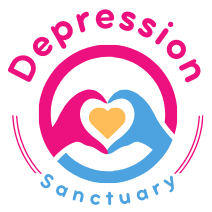Knowing if someone is depressed can be difficult, especially if that person is trying to hide their condition.
However, being familiar with the signs and symptoms of depression can help you know that they might be struggling so you can reach out to help.
What is depression?
Before we dive into identifying depression in others, it is essential to understand what depression is. Depression is a mental health disorder that impacts a person’s emotions, thoughts, and behavior. It can cause feelings of sadness, hopelessness, lack of interest in activities once enjoyed, and other debilitating symptoms.
Depression can be caused by various factors, including brain chemistry, genetics, and life events such as trauma and stress.
Signs of depression
As mentioned earlier, depression can manifest through various signs and symptoms, and these can be different in different people. However, some common signs and symptoms of depression may include:
Changes in Mood and Behavior: One of the most significant indicators of depression is changes in mood and behavior. A person who is usually happy, outgoing or social may suddenly show signs of withdrawn behavior, lost interest in activities, or isolating themselves from others. Depressed individuals may also show signs of irritability, be easily annoyed or frustrated, or lash out at others.
Lack of Energy: Depression can also cause a person to feel completely drained and lacking in energy. They may feel tired, lethargic, and unmotivated to do anything. Even simple tasks like getting out of bed or taking a shower can be a struggle for a person suffering from depression. They may also complain of physical symptoms such as headaches, stomachaches, or muscle pains.
Changes in Sleep and Appetite: Depression can also affect a person’s sleeping and eating habits. A person may experience changes in their sleeping patterns, such as insomnia or oversleeping. They may also experience appetite changes, such as overeating or undereating. These changes can lead to weight loss or weight gain, further worsening their overall health.
Self-Harm or Suicidal Thoughts: While not all people experiencing depression may exhibit self-harming behavior or suicidal thoughts, it is essential to recognize the signs. A person may engage in self-harm behavior, such as cutting or burning themselves, in an attempt to cope with their feelings. They may also talk about suicide or have a preoccupation with death. If you notice these signs, it is crucial to reach out for help immediately.
How to help when someone is depressed
If you suspect someone is depressed or struggling with their mental health, it is important to offer support and encouragement. Let the individual know that they are not alone and that they can overcome their struggles. Encourage them to seek professional help, such as a mental health professional, therapist, or counselor. Additionally, offer your support by listening and offering help with basic needs such as cooking, cleaning, or running errands.
What to do if that someone is you
If you are the person experiencing symptoms of depression, it is important not to discount your struggles. Remember that depression is a common and treatable mental health condition. Reach out to a trusted friend or family member, and consider seeking professional help such as therapy or counseling. Don’t hesitate to call a hotline or emergency services if you feel overwhelmed or have thoughts of self-harm.
Depression is a mental health condition that can have a significant impact on a person’s life. It’s essential to recognize the signs and encourage loved ones to seek the help they need. By paying attention to changes in mood and behavior, lack of energy, sleep or appetite changes, suicidal thoughts, and self-harm behavior, you can play a pivotal role in helping someone who may be struggling with depression. Remember, depression is treatable with the right care and support.
Photo by RODNAE Productions
Annie Ingalls is a pseudonym for all articles published on this site that have been at least partially generated using AI. All articles are fact-checked by Nancy Schimelpfening, M.S., and edited as needed. Some supplemental content written by Nancy may be included, as well. Additionally, each article is run through a plagiarism checker to ensure that we are not inadvertently violating anyone’s copyright. If you feel that the AI bot has copied your work in any way, please contact us at contactus@depressionsanctuary.org and we will remove it right away.

